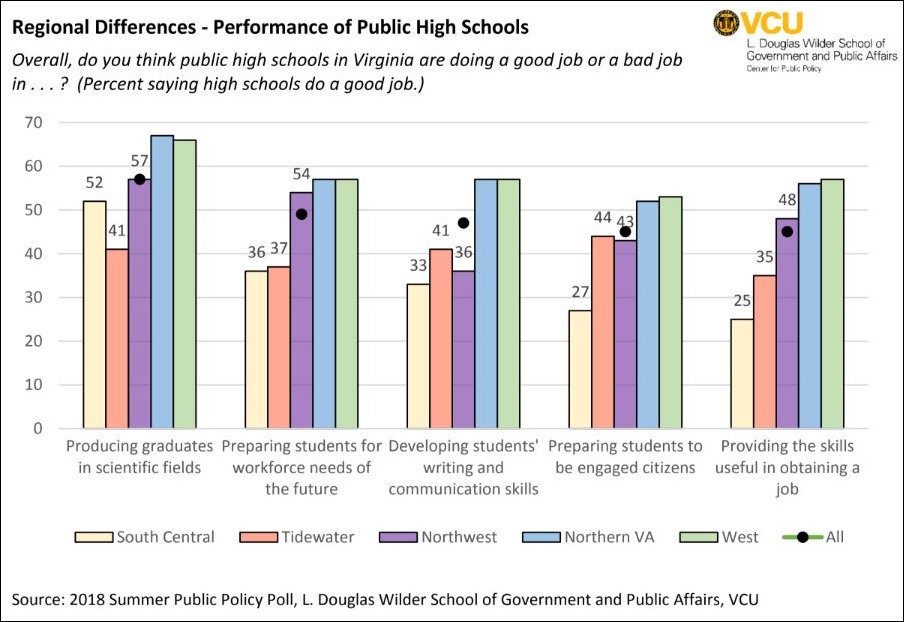
Click graph for more legible image. Image credit: L. Douglas Wilder School of Government and Public Affairs
A slim plurality of Virginians — 47% — believe that their public high schools are “doing a bad job” in providing skills that will be useful in obtaining a job, according to a poll published Sunday by Virginia Commonwealth University’s L. Douglas Wilder School of Government and Public Affairs. Forty-five percent graded schools as doing a “good job” and 8% did not know.
The negative appraisal of public schools was most intense in the “South Central” region (which includes the Richmond metropolitan area) and in Hampton Roads, and the most positive in Western Virginia and Northern Virginia, with Northwestern Virginia falling between the two extremes. In the South Central region, 62% of respondents rated public schools poorly; in Tidewater the response was 61% negative.
The poll, a random sample of 802 adults in Virginia conducted by landline and cell telephone from July 10-30, has a margin of error of 3.49 percentage points. The poll also surveyed Virginians about their attitude toward higher education, which I will highlight in a future post.
When pollsters drilled into specifics, Virginians expressed the most confidence in the ability of public high schools to do a good job producing graduates in scientific fields, such as engineering, math and technology: 57% positive compared to 33% negative.
Respondents were more ambivalent about high schools’ track record in preparing students to be “engaged citizens” and developing students’ writing and communications skills.
By age, the 45- to 64-year-old grouping was consistently the most skeptical. By education level, the “some college” group was consistently the most skeptical. By party affiliation, Republicans were significantly more dubious than Democrats and Republicans: 63% of Republicans think public schools are doing a bad job of providing useful workplace skills, compared to 38% of Democrats and 34% of Republicans.
Whites were slightly more skeptical of the value of a public school education than minorities, although the difference was not large. There was little consistent difference between the attitudes of parents and non-parents of public school students.
Bacon’s bottom line: Surveys that provide a binary choice, like this one, irritate me. Either schools are doing a “good job” or a “bad job” with no room for ambivalence, which many people undoubtedly feel. With that caveat aside, it’s an indictment of the public school system when a plurality of respondents say the schools are doing a poor job at equipping Virginia’s children with the skills they need to participate in the workforce — a searing indictment in the case of South Central and Hampton Roads.


